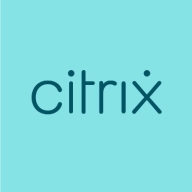

Red Hat Enterprise Virtualization and Citrix XenServer compete in the virtualization space. Citrix XenServer holds a perceived advantage with its feature-rich offerings and value for money, whereas RHEV is known for superior support and competitive pricing.
Features: RHEV delivers robust scalability, seamless integration with Red Hat services, and is based on an open-source framework providing flexibility. Citrix XenServer shines with sophisticated management tools, extensive performance monitoring, and a streamlined architecture that enhances resource efficiency.
Room for Improvement: RHEV could improve in advanced monitoring tools, offering a more comprehensive management console, and simplifying complex integrations with third-party software. Citrix XenServer may benefit from better pricing flexibility, enhanced support for heterogeneous environments, and more intuitive user interfaces for first-time users.
Ease of Deployment and Customer Service: RHEV's deployment benefits from simplicity and tight integration with Red Hat products, backed by strong enterprise-level support. Citrix XenServer offers an easy setup process with intuitive management and detailed documentation, delivering quality customer service overall but lagging behind RHEV in streamlined integration support.
Pricing and ROI: RHEV provides cost-effective pricing with lower initial costs and showcases good ROI through its open-source integration capabilities. Citrix XenServer requires a higher upfront investment; however, its comprehensive features provide justification via long-term ROI and superior performance.
| Product | Market Share (%) |
|---|---|
| Citrix XenServer | 4.6% |
| RHEV | 2.4% |
| Other | 93.0% |

| Company Size | Count |
|---|---|
| Small Business | 29 |
| Midsize Enterprise | 8 |
| Large Enterprise | 18 |
| Company Size | Count |
|---|---|
| Small Business | 21 |
| Midsize Enterprise | 5 |
| Large Enterprise | 12 |
Citrix XenServer provides virtualization with high availability and robust security, offering seamless VM migration and centralized management through XenCenter. Its expansive compatibility and integration enhance its appeal, particularly for SMBs.
Citrix XenServer is recognized for its user-friendly virtualization capabilities, facilitating dynamic scalability and efficient resource management. It supports a wide range of operating systems and integrates with Citrix solutions for improved operations. Businesses benefit from its affordability and ease of deployment. Despite its strengths, users seek improvements in third-party tool integration, network and backup management, and storage flexibility. High costs, limited Linux support, system complexity, technical support, and hardware compatibility remain challenges. An updated and intuitive interface is in demand for more seamless operations across platforms.
What are the key features of Citrix XenServer?In diverse industries, Citrix XenServer is leveraged for server and desktop virtualization, cloud automation, and infrastructure management. Many deploy it for virtual desktop infrastructure, application delivery, on-premises data centers, and to support Citrix application delivery like XenApp and XenDesktop. Enterprises migrating from VMware often find Citrix XenServer cost-efficient for these applications, serving as a main computing platform for enterprise applications including ERP systems and SQL Servers.
Red Hat Enterprise Virtualization, or RHEV, is a leading open standard enterprise virtualization management solution. This solution supports virtualization of servers and desktops using the same infrastructure and a single easy-to-use interface.
Because RHEV is based on open standards, it is vendor-independent and a lot more cost effective and flexible than proprietary solutions.
We monitor all Server Virtualization Software reviews to prevent fraudulent reviews and keep review quality high. We do not post reviews by company employees or direct competitors. We validate each review for authenticity via cross-reference with LinkedIn, and personal follow-up with the reviewer when necessary.